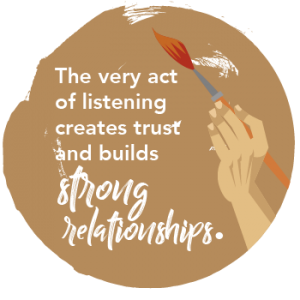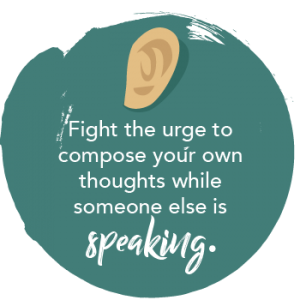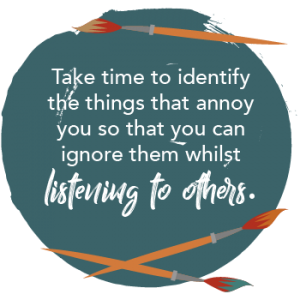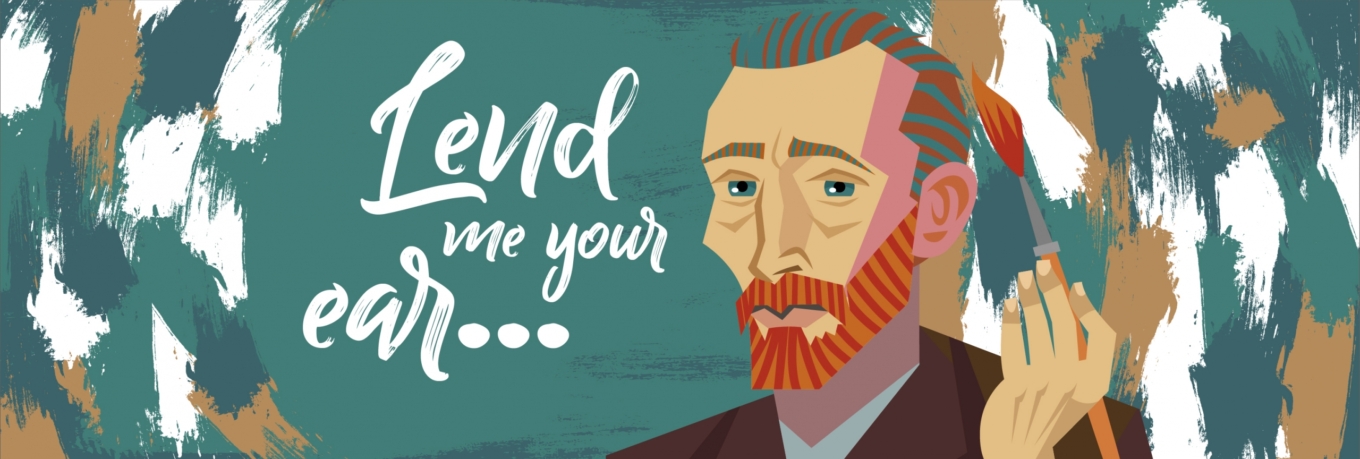Let’s take a straw poll. What do you think is the most important skill for communicators?
Storytelling? Planning? Business understanding?
To be good at what we do, we need to be skilled in many different areas. But there’s one skill we often take for granted.
Listening is a fundamental part of our role, but how many of us consciously develop our listening skills?
The benefits of listening go far beyond simply gathering information or understanding someone’s point of view.
Listening allows us to uncover the powerful stories in our organisations. Those great examples of customer service, living the values or collaborating across teams. Stories like these often lie undiscovered. But through listening we can tease them out and give them new life by bringing them to a wider audience.
We can also nurture creativity. At Apple’s memorial celebration of Steve Jobs, designer Jonny Ive explained how he loved the way Jobs listened so intently. Jobs, he said, understood better than anyone that “while ideas ultimately can be so powerful, they begin as fragile, barely-formed thoughts. So easily missed, so easily compromised, so easily squished.”
What’s more, the very act of listening validates us as people. It creates trust and builds strong relationships. Medical researchers in the United States have found the likelihood of doctors being sued is determined not by their medical skills, but how much time they spent with their patients. Just a few minutes longer, on average, was enough to make patients feel listened to and understood – rather than being ‘processed’.
Listening is part skill, part state of mind. So how can we do it better? Here are six ideas to put into practice.
Ditch your preconceived ideas
Preconceived notions are the first barrier to listening, according to CNN journalist Chris Cuomo.
“People often listen through filters,” he says in an interview with leadership coach Marshall Goldsmith. “They’re listening for something specific. They’re listening to be resistant to or have acceptance of something that’s said. Listening is about being open.”
So take a moment to identify your own expectations of your next conversation. Then put those expectations to one side while you listen.
Set yourself aside
Most of us wait our turn while listening, looking for an opportunity to jump in and contribute our views. But as radio host Celeste Headlee puts it in her excellent TEDx talk – it’s not about you.
“If they’re talking about the trouble they’re having at work, don’t tell them about how much you hate your job, It’s not the same. It’s never the same. All experiences are individual.”
If you’re prone to contributing your opinions, try Marshall Goldsmith’s ‘feedforward’ approach. Ask for ideas, but refrain from replying with your views, or commenting on the validity of theirs. By fighting the urge to compose our own thoughts while someone else is speaking, we become better listeners.
Go with the flow
If you have several questions you want to cover, it’s tempting to stick to your script. But you may miss the really good stuff in the process. Better to go with the flow.
Harvard professor Alison Wood Brooks found that most follow-up questions in business are actually topic-switching questions. But drilling further into one issue enables a much deeper understanding. Cuomo recommends simple follow-up questions such as: “Why?” “Such as?” “And then?” to keep your subject talking.
Think of it as a game of tennis. You respond to what your partner is saying like reacting to their shot – rather than waiting for your turn as you would in golf.
Assume everyone has a story to tell
Everyone has an interesting story inside them. Part of our role as communicators is to coax those stories out.
To do that, actively listen for something unexpected or surprising. A conflict, a struggle or a tale of overcoming the odds. If it makes you feel something, it’s likely to make a great story.
As the astronomer and inventor Galileo Galilei once said: “I’ve never met a man so ignorant I couldn’t learn something from him.”
Be aware of your hot buttons
Most of us know people who irritate us even before they start talking. And we often switch off as a result.
According to The Mind Gym Relationships, we all have ‘hot buttons’: phrases or views guaranteed to wind us up and take us out of listening mode.
If we take time to identify the things that annoy us, we can be ready to ignore them and carry on listening.
Stay focused
The more we focus on a conversation, the more useful it will be. One way to do this is to concentrate on collecting facts, Inspector Morse-style, rather than making judgements on what someone is saying.
But however hard we focus on listening, thoughts still have an annoying way of popping up to distract us. If you find yourself wondering whether you locked the front door this morning or have enough milk in the fridge, take a tip from meditation practice. Simply notice you’ve been distracted, then bring your attention back to the other person – without getting annoyed with yourself.
You can practise listening every day, so why not experiment? Avoid the temptation to give your own views or experiences. Probe for more details. Believe there’s a great story in everyone, waiting to be uncovered. We’ll not only improve our own communications – we’ll make someone else feel good too.
By Dave Wraith for Alive!
Find more listening tips in Supporting line managers: are you listening to me?
















